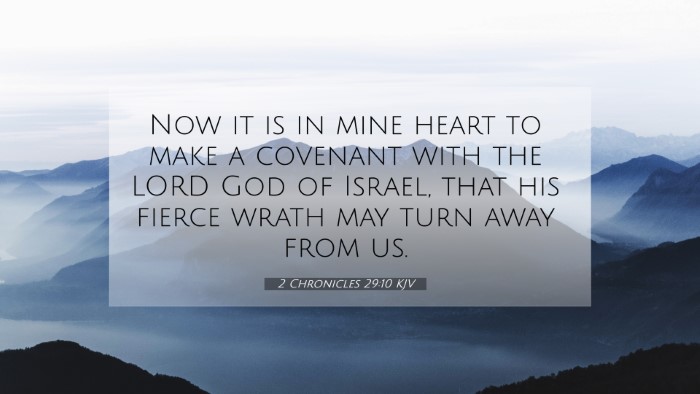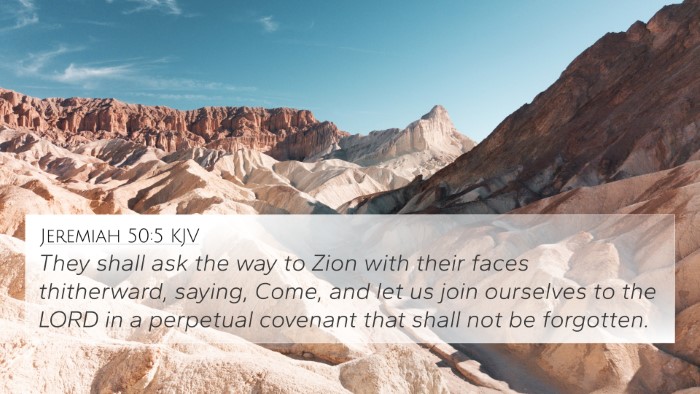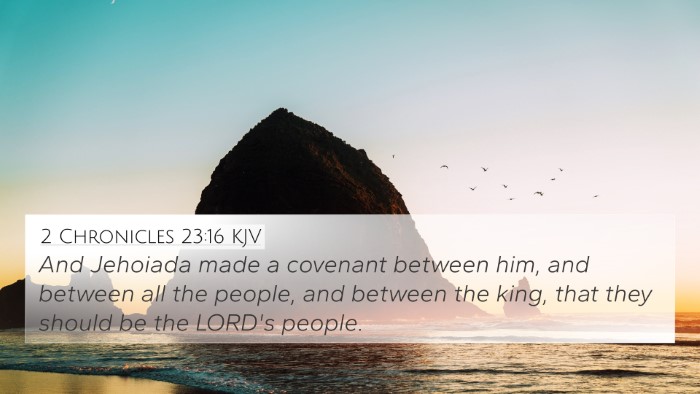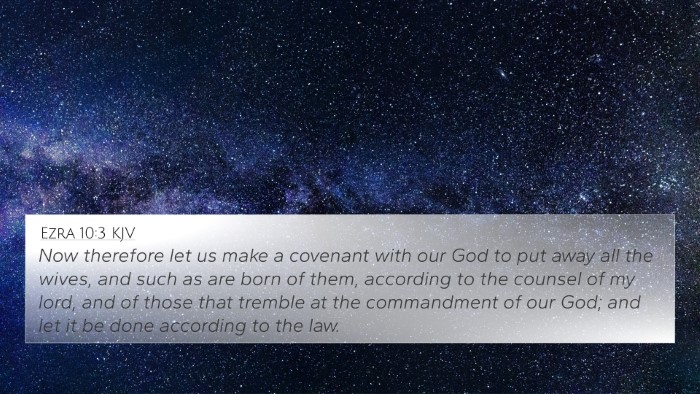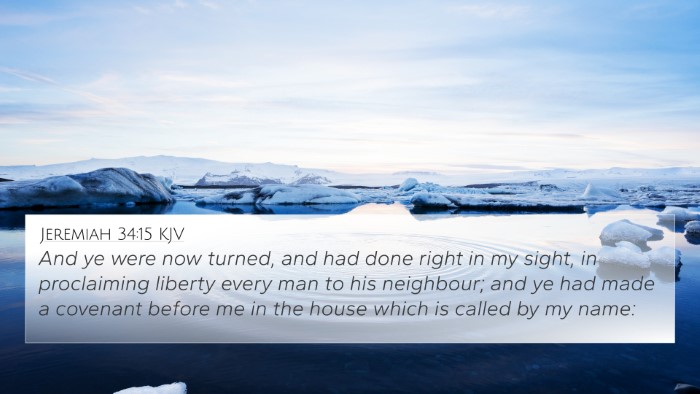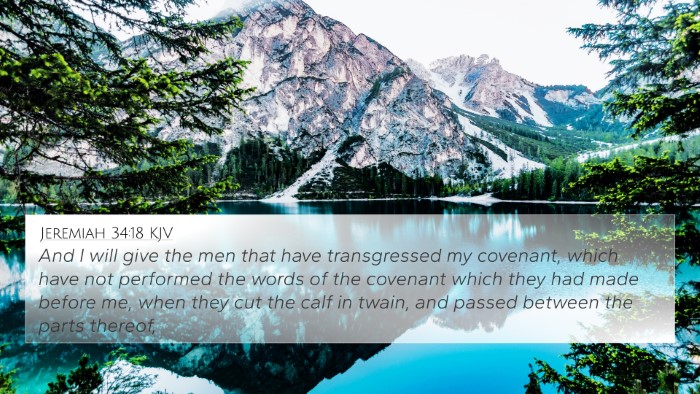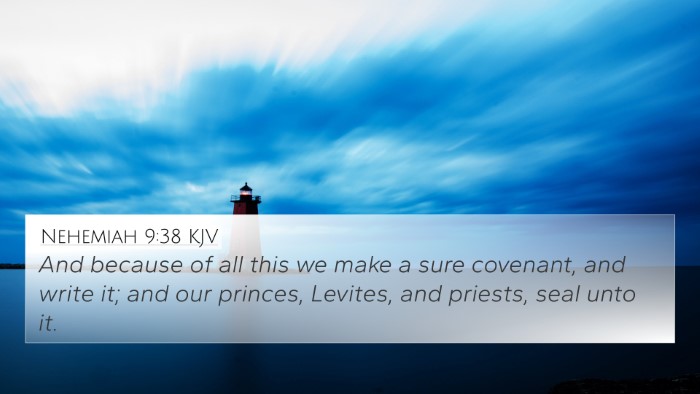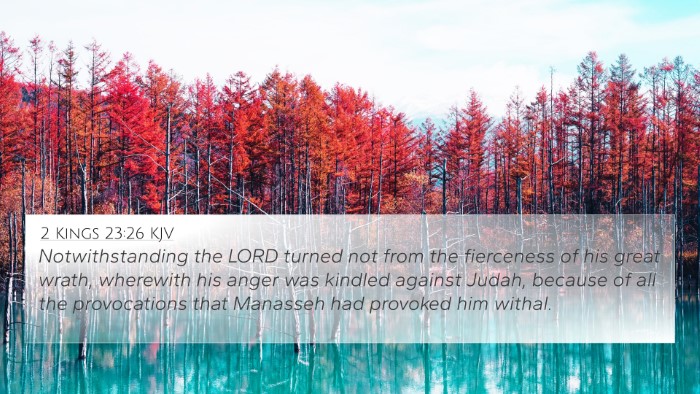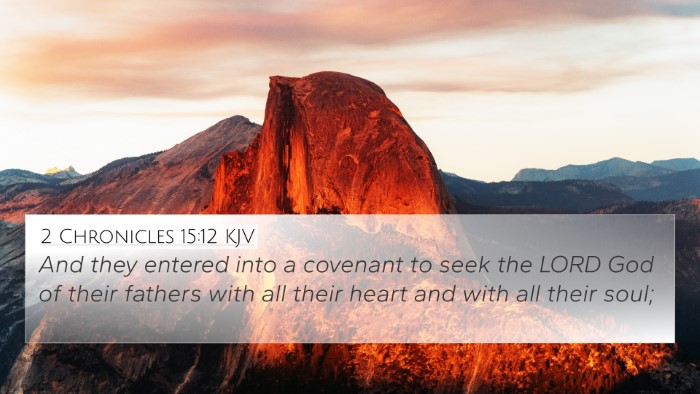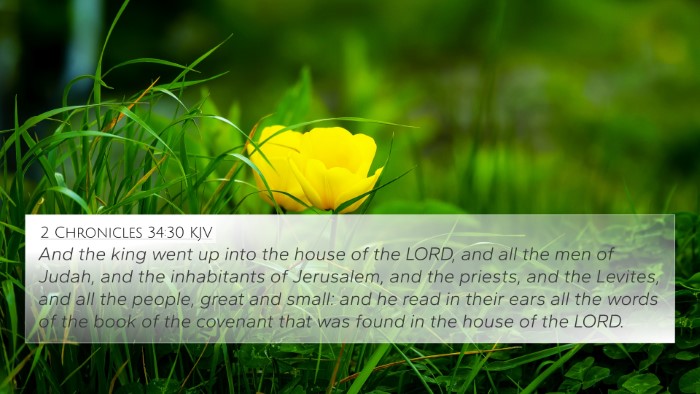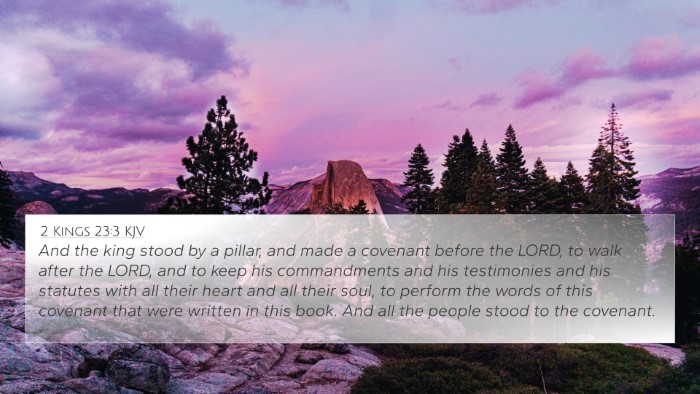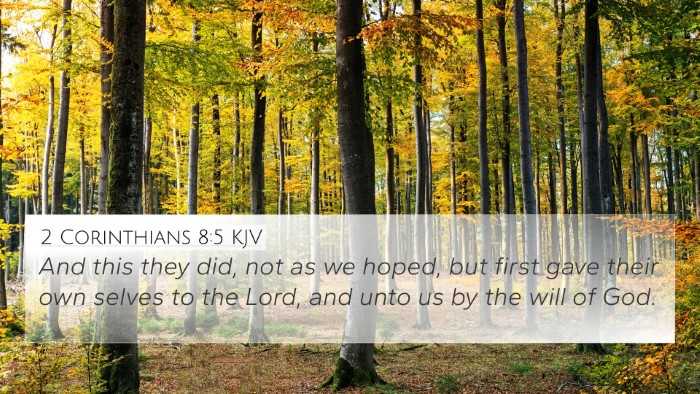Understanding 2 Chronicles 29:10
Bible Verse: 2 Chronicles 29:10 - "Now it is in my heart to make a covenant with the Lord God of Israel, that his fierce wrath may turn away from us."
Verse Context
In the context of 2 Chronicles, this verse is a part of King Hezekiah's efforts to restore true worship in Judah after the previous reigns that had led the nation away from God. Hezekiah acknowledges the critical need for a renewed covenant with God to avert divine judgment.
Interpretation Insights
- Matthew Henry's Commentary:
Henry emphasizes the sincerity of Hezekiah's intentions to reestablish covenant relations with God. He reflects on the importance of the heart's condition in spiritual matters, underscoring that true commitment stems from genuine desire for reconciliation with God.
- Albert Barnes' Notes:
Barnes points out the significance of a covenant as a means to receive God's mercy. He interprets this verse as a recognition of the seriousness of sin and the necessity of a relationship with God that involves commitment and promises to uphold His commandments.
- Adam Clarke's Commentary:
Clarke discusses the historical context, noting that Hezekiah's actions were prompted by the previous corruption in worship. He highlights the term "fierce wrath," showing that Hezekiah understood the consequences of sin and the importance of divine favor for national restoration.
Thematic Connections
The verse serves as a bridge to several key themes in Scripture, particularly regarding God's covenantal relationship with His people, the consequences of disobedience, and the appeal for mercy. Here are strategic connections:
- Repentance and Restoration: 2 Chronicles 7:14 - Calls for humility and turning from wickedness.
- God's Mercy: Nehemiah 9:17 - Highlights God's readiness to forgive and restore.
- Divine Judgement: Romans 1:18 - Explores the concept of God's wrath against sin.
- Covenant Relationship: Exodus 34:27 - Establishes the importance of covenants in biblical narrative.
- National Restoration: Joel 2:12-13 - Discusses returning to God with all one's heart.
- Faithfulness to God: Psalms 78:37 - A reminder of the importance of an undivided heart towards God.
- Fruits of Repentance: Matthew 3:8 - A call to show evidence of genuine repentance.
Cross-Referencing Biblical Texts
Cross-referencing can deepen one's understanding of biblical texts and themes. Here are tools and strategies for effective comparative Bible verse analysis:
- Bible Concordance: A resource for finding verses related to specific words or themes.
- Bible Cross-Reference Guide: A material that connects verses with similar themes or messages.
- Tools for Bible Cross-Referencing: Use study Bibles that provide cross-references in margins.
- How to Use Bible Cross-References: Start with a verse and explore related texts listed in study materials.
- Bible Chain References: Following linked verses can uncover thematic connections.
- Comprehensive Bible Cross-Reference Materials: Utilize online databases or software for easier access.
Inter-Biblical Dialogue
The connections between Old and New Testament scriptures reveal a continuous dialogue about God's nature, His expectations for humanity, and His enduring mercy. Notable parallels include:
- Call to Return: Luke 15:10 - Joy in heaven over one sinner who repents, reminding readers of God's value for reconciliation.
- God's Continued Faithfulness: 1 Corinthians 1:9 - Emphasizes God's call to fellowship with His Son.
- New Covenant Concept: Hebrews 8:6 - Presents Jesus as the mediator of a better covenant, reflecting the idea of renewed agreements with God.
Conclusion
Through 2 Chronicles 29:10, we not only witness King Hezekiah's heartfelt call for renewal but also gain insight into the broader theological implications of sin, repentance, and divine mercy. Cross-referencing this verse with others enhances our understanding of biblical narratives and encourages deeper engagement with scripture.


